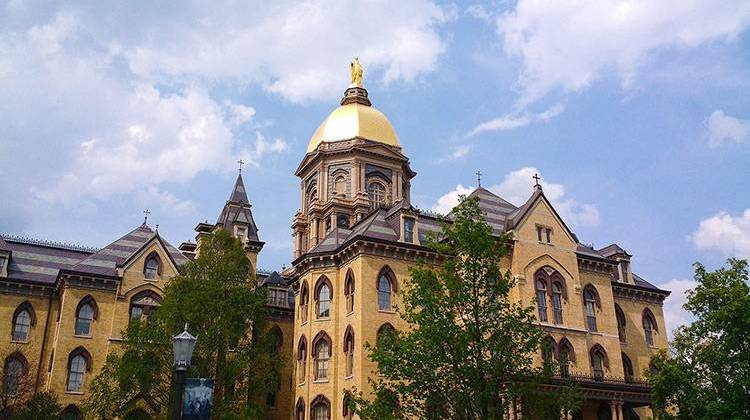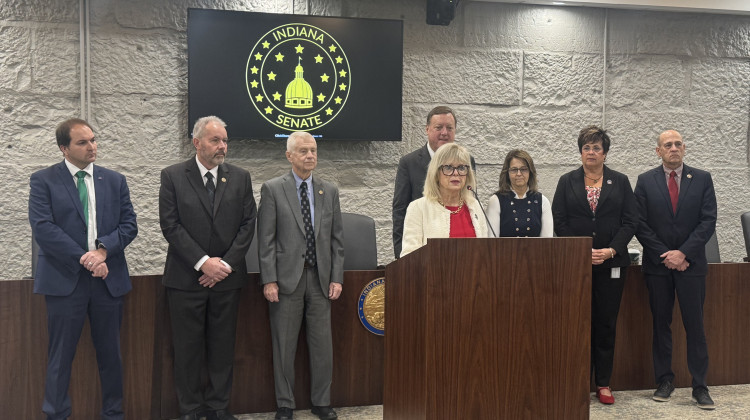
The Indiana Supreme Court ruled Wednesday that the University of Notre Dame and other state private universities can keep police records closed to the public.
file photoThe Indiana Supreme Court ruled Wednesday that the University of Notre Dame and other state private universities can keep police records closed to the public.
The justices say the school’s police were not government entities when ESPN filed the lawsuit in 2014. But a recent change in state law means newer records are fair game.
ESPN sued Notre Dame in 2014 to see police reports involving 275 student athletes. Two lower courts couldn’t agree on a ruling, which sent the case to the state’s supreme court.
The justices ruled Wednesday that when the suit was filed, under Indiana’s Access to Public Records Act, Notre Dame police weren’t considered public officials – that they answered to the school’s trustees, not the state, in enforcing the criminal code.
State public access counselor Luke Britt disagrees with the ruling.
“They are exercising a government function,” he says of the Notre Dame Police Department. “Normally, when that happens, they will be considered a state actor for the purposes of other types of oversight considerations.”
Under a state law that took effect in July, though, Britt says private school police forces now are defined as public agencies.
That new law doesn’t apply to old arrest or investigation records – including the ones ESPN wanted – but Britt says it will apply to any private university police records from July onward.
State law already defined public university police agencies, such as Indiana University’s, as government entities.
Professor of Journalism at DePauw University Miranda Spivack says the decision could lead to a rewriting of transparency laws in Indiana, as it has in other states.
“The Ohio Supreme Court said that, just last year in 2015, that a college being a private institution does not preclude its police department from being considered a public agency,” Spivack says.
Spivack says that case was also prompted by a records request. And she says Connecticut, Georgia, North Carolina, Texas and Virginia all now require private college police departments to release records.
Assuming the Notre Dame case isn’t taken up to the U.S. Supreme Court – something Spivack doubts will happen since it’s such a state issue – the General Assembly would have to rewrite the law for Indiana to join that list.
“And I think that would all depend on how much public opinion is mustered in favor of this kind of disclosure,” Spivack says.
WFYI's Drew Daudelin contributed to this report.
CLARIFICATION: The legislature considered two different bills addressing the question of private police forces as government entities. Gov. Mike Pence vetoed one in March, but the other, House Bill 1019, passed. It deals with access to police body camera footage and includes language defining a private university’s police force as a public agency.
However, Public Access Counselor Luke Britt says he believes the legislature “didn’t mean to” make that change by passing the body cameras bill. He says they may reconsider the language when they reconvene in January.
 DONATE
DONATE









 Support WFYI. We can't do it without you.
Support WFYI. We can't do it without you.